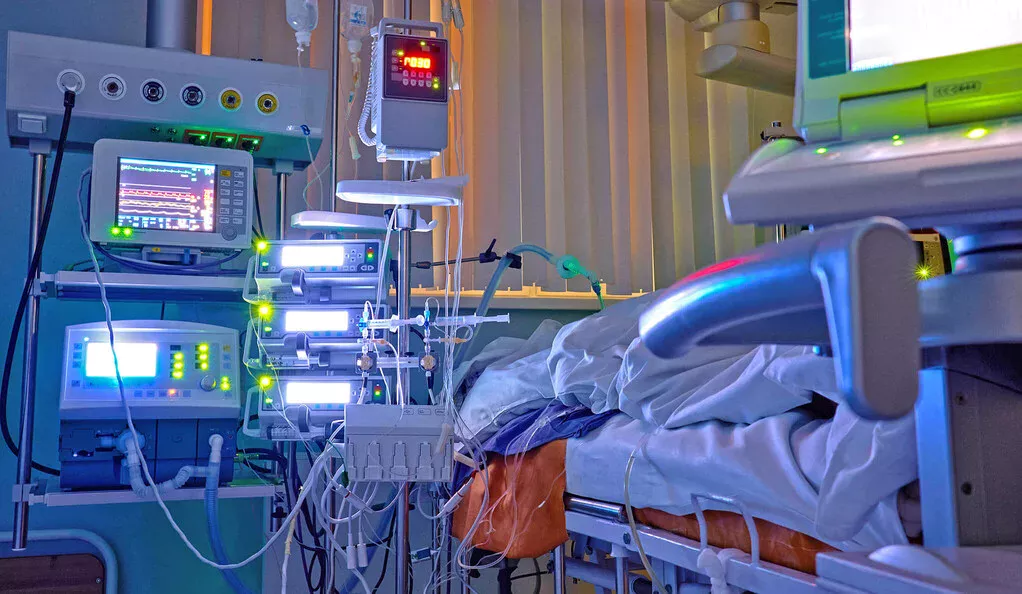“Brother David, how’s your soul?” The question took me by surprise. It was time for my first advisement meeting with my residency program director.
In medicine, the machine runs on competence and achievement of “milestones.” Yet, as I braced for a meeting to trudge through performance evaluations and in-training exam scores, I awoke to humanity.
How’s my soul? Intern year had not been kind to me. It was the dead of winter, and I had just finished another grueling week in the ICU. I knew residency would be hard, but I did not expect to find myself on the brink of quitting. I came to residency with an idealistic vision of maintaining my priorities—the sacred “F’s” of faith, family, and friends. Career was to come after the people in my life. But after only 6 months, internship had stolen this from me. I drove to work each morning groggy, dreading working in a job in which I was inadequate, stealing the waking hours of the day, ravaging my emotional reservoir, leaving me to feel empty and lacking as a husband, as a brother, as a friend.
“Brother David, how’s your soul?” The question reminded me that I am seen. The question invited vulnerability. It reminded me that I am human. The conversation that followed was like a soothing balm to my burned-out soul. During the 4 years that followed, I cherished these advisement meetings deeply. By intentionally focusing on flourishing, my program director came to know David the person, not just Dr Vermette the resident. He learned that I am a bassist at my church and had once considered a career as an audio engineer. He learned that my parents are palliative care physicians and that I learned the power of presence through their example. He learned that my wife is my world and that she is an artist and attorney. He learned that I wrestled with faith and how to find purpose in the midst of suffering. He learned that I found meaning not in the coagulation cascade, but in relationships and in service to others. He helped me discover my passion for medical education. We certainly reviewed academic progress and clinical evaluations in our time together, but the conversation was always framed within the context of my growth as a human being.
My program director’s model of leadership had its roots elsewhere; as an MD-MDiv (Master of Divinity), he brought a unique perspective to his role. Medical education has numerous models for coaching, advising, and mentoring. While these models helped develop my professional life, they missed the fundamental core of who I am: a human being. Perhaps instead we could embrace a model in medical education built on the tenets of pastoral care.
Pastoral care has been described as encompassing 4 basic functions: healing, sustaining, guiding, and reconciling.1 The same functions are also critical in the role of residency program leadership. In many ways physicians are wounded healers. Residency training is arduous. Trainees endure grueling hours, physical fatigue, psychological duress, and moral injury.2 Further, most residents want their program directors to take an active role in fostering their well-being.3 The core functions of pastoral care, then, can serve as a guidepost for program directors and others involved with mentoring and training residents.
Healing—The art of healing involves an acknowledgment of brokenness. It makes space for individuals to come as they are and meets them at their place of need. Trainees come to their advisors with myriad ailments and it is up to leaders to develop a contextualized approach to supporting their trainees. A culture of psychological safety is paramount. Healing involves the practice of presence, sitting with trainees in the midst of the struggle, listening to what ails them, and helping them find wholeness.
Sustaining—The work hours are long and the journey can be discouraging at times. Burnout is rampant, impostor syndrome is endemic, and fatigue is the norm. The function of sustaining involves helping trainees find their inner strengths and helping them identify the external sources from which they draw strength, which may include family, friends, arts, exercise, and faith traditions. It involves being a consistent supportive harbor for trainees to help them weather the storm.
Guiding—Residents often look to their program directors and other advisors as career guides who have journeyed before them and know the path well. Leaders can build on their existing skillset in this domain by exploring with trainees additional areas in which they seek guidance. This can include identifying mentors, mental health support services, and career development resources and helping create individualized learning plans to optimize both personal and professional growth.
Reconciling—Disillusionment with the practice of medicine can begin during medical school and often amplifies during residency. How does one reconcile their lived experience of being a physician with the ideals they envisioned when they first embarked on the journey? How does one work effectively on an interprofessional team when the clinical learning environment is rife with microaggressions and tension? These are among the important questions to navigate with trainees. Program leaders can provide a guiding light to the trainees in how to bring reconciliation to the broken systems in which they work and how to align their work as a physician with their core values.
In the years since completing my training in internal medicine and pediatrics, I have served on clinical competence committees, worked as a longitudinal coach for medical students, and have been fortunate to take on my own cohort of residents as an associate program director. In each meeting I have with a trainee, I remember the words of my own program director during that first cold winter of internship. “Brother David, how’s your soul?” By incorporating the core functions of healing, sustaining, guiding, and reconciling into my role as a program leader, I aspire to help residents feel seen, known, cared for, and understood. Perhaps they will pay it forward. Perhaps medical education will become an institution of healing.

